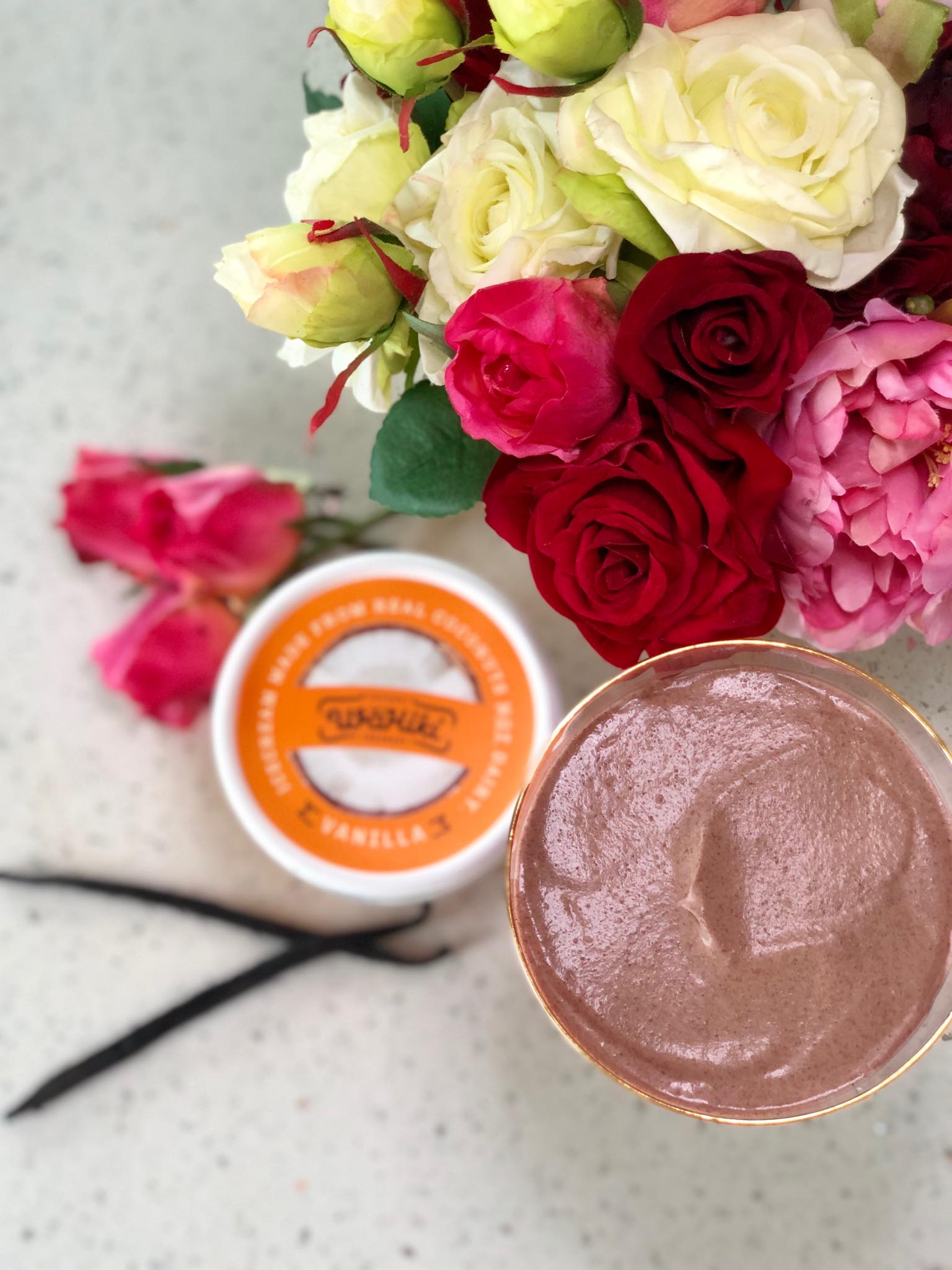Most of us know how to comfort people. Whether it’s a hug, a good chat or a gift of food, wine or flowers, we are pretty confident that we can cheer up those close to us. It’s instinctive and doesn’t really take up much of our day. To comfort is also to feel good about ourselves and how nice we are. Top marks!
But what happens when the usual comfort scenario just won’t do? When you struggle to find words, to find meaning, to find something suitable for that really horrible, terrible, shattering thing which has happened to someone you love?
Last year brought me to that state several times. In my circle of friends, there were unexpected deaths of three gorgeous people I loved, taken suddenly and too young, the expected but nevertheless upsetting death of my mother-in law, a house burned to the ground and several major illnesses requiring intensive treatment.
On all these occasions, I was left feeling that flowers just won’t cut it. Nor would food and wine. A hug and a chat? Not good enough.
In my own life I have had tragedy when I lost my daughter Virginia to cot death in the early 90s. She would have been 30 this year and so I have spent some time thinking back to those awful first days and what worked for me. Was it calls of sympathy and cards in the mail? Not really. It was my mother-in-law moving in with us to help look after our other children, to cook us meals, to answer the door and the phone when we didn’t want to.
It was our close friends who took over the house move which was due to take place a week after she died. I still shudder at the dust and grime they must have found as they packed up our whole house and shifted it while we took our children to the beach for the day. Now that is comfort. We walked into our new home with beds made and everything put away in the cupboards. We felt loved and supported and so very, very grateful.
As we head into a new year, which will bring more tragedy for people we love, because that is what life is, I’ve put together a guide for comfort, how to really ease someone’s grief and distress in a way that works.
Privacy
It always amazes me that when a tragedy happens to someone, people respond by rushing around to their house and not doing much other than to sit there. Sadly there are people in this world who are grief junkies and love nothing better than getting in amongst it. Unless you are immediate family or a BFF, this is not welcome. Your presence requires someone to get up and make you a cup of tea and talk to you when all they need is someone to take care of them. So respect that privacy and stay away until you are wanted. Pop a card in the letterbox, or send a message which says ‘I know you just need your family and close friends with you today, but know that I am there for you when you need me’. If you are a close family member or friend, then by all means turn up and be present, but do something, don’t just sit there and stare at them. Put yourself in the role of security and protect them from unwanted visitors or calls. Become their personal chef and spend your time cooking up delicious meals to tempt their appetite and serve visitors tea and coffee if they make it through the door. Become their nanny, taking over the care of the children for a few days or a week if you can. Become their personal secretary and organise all the paperwork that usually follows a tragedy. Deal with doctors, lawyers, funeral directors and others who need to be included at this time.
Answer their emails or set up an automated reply for them. Become their cleaner and wash the linen and clothes (dry it too and fold it, don’t just leave it on the line for them to find a week later). Vacuum, dust and mop. Become their Uber driver, picking up and dropping off as required. The key to this is that while you are busy doing things for them, they will talk to you and share with you how they are feeling because it is a less formal situation. No one feels like talking to someone who is sitting on the couch staring at them all day.

Follow up
Anyone who has weathered a tragedy will tell you that while the thoughts and prayers are with them immediately after the event, fast forward a few months and they are all gone. The long process of recovery has started but suddenly you are alone. So be that person who checks in every week or month until you are not needed, which could take years.
What to say
Most people can write down a few words about sorrow and hope. But a lot of people also say ‘let me know if there is anything you need’. I am so, so guilty of this myself and I should know better. Very few people in the midst of a crisis know what they need in the next five minutes, let alone what they need tomorrow. If you are genuine in your offer to help, then frame it differently. ‘I’m popping into the supermarket this morning so I will drop off some groceries. I’ll just leave them on your doorstep.’ It’s not hard to work out what they might need. ‘Can I pick your kids up from school today and take them out for a treat?’ ‘I’m taking our dog for a walk this afternoon so I can come and pick up yours for a playdate at 3.’ The emphasis is on proposing something they don’t have to think about or organise. Just do it.
Don’t ever, ever say
‘This was God’s plan.’ For a start, your friend might not be into religion and even if they are, trying to minimise their loss by claiming that it was meant to be is not only hurtful but ridiculous and in my case after it was said to me several times, deeply offensive.
‘You’ll feel better soon.’ They won’t. Not for years. The average time a person takes to process grief is about two years. So don’t lie to them.
‘It’s time to move on.’ How do you know? Walk a mile in their shoes and you will find that they are nowhere near the time to move on or they may never move on. It’s their choice and none of your business.
What to cook
One day, I cleared the mailbox at the bottom of our drive and sitting in there was a container of something orange. I took it into the house and it was the most delicious pumpkin soup with dumplings, which fed the family that night. I never knew who dropped that off, but 30 years later I can still remember the taste, the feel and the gratitude. For illness, chicken soup is always the go-to, and for grief, anything goes as comfort food, as long as they don’t have to cook it. My new food gift is a mushroom soup I created for the emphasis on nutrition. New studies on mushrooms show that they are anti-inflammatory and can play an important role in protecting our immune cells against disease. They are also rich in vitamin D, protein and fibre and have the added benefit of being great for friends who are vegetarian or vegan. I’ve also added into the soup some of the top five spices as recommended by Kanchan Koya, a molecular biologist who specialises in researching the healing properties of spices. They are turmeric, black pepper, ginger, sumac and Ceylon cinnamon. See my recipe for healing, comforting mushroom soup.
What to give
My friends all like wine, so the number one gift right off the bat is a case of wine delivered to their door. A coffee subscription is also a great idea. Tragedy means people gather which means the need to have heaps of wine, coffee and tea. But I think it’s also nice to think forward in time. What would be good in a month’s time when the shock has worn off and they are now entering the long and draining process of adjustment? A voucher for a zoo visit or an experience that the family can share and get out of the house. An iTunes voucher so they can watch some movies or buy some music to listen to. An iPad loaded with iTunes money if you can afford it. For some people I love to send books. There is a whole genre of books called ‘comfort cosy’ which are easy to read, do not involve death or mutilation and can send the reader down a cosy path of warmth. While I was writing this column I saw a mention in a British newspaper of a genre of books called ‘nourish fiction’. Ah, I thought, what a wonderful idea for a new type of book – until I re-read it and realised it actually said ‘noirish fiction’, so not something for comfort. What you need when you are distracted by grief or illness is best described by writer Jean Rhys in her book Good Morning, Midnight: “I want a long, calm book about people with large incomes – a book like a flat green meadow and the sheep feeding in it.”*
One book I highly recommend, which I have sent to countless people, is The Comfort Book by Matt Haig. Haig writes very well in his other books about depression and mental health but this book is a lovely thing you can dip in and out of, which is how some people read in difficult times. They don’t have the energy or concentration to get stuck into a novel, but can easily pick up a book for a few minutes and read some words of comfort. My favourite page is called ‘It’s Okay’: “It’s okay to be broken, it’s okay to wear the scars of experience, it’s okay to be a mess…” Others to try are Eleanor Oliphant Is Completely Fine by Gail Honeyman, The Cazelet Chronicles (five books) by Elizabeth Jane Howard. And any books by Mary Wesley, Elizabeth Taylor (the author not the actress), Muriel Spark, Barbara Pym, Dorothy Whipple or Jill Mansell.
*I don’t recommend Jean Rhys novels as they are mostly about being depressed and drinking too much in hotels in Paris following trauma. It might prove too tempting for some.
Comfort clothes and bedding
We all feel better when we can slip into what is now called ‘leisure wear’. Elastic waist soft pants, loose tops made of soft, plush natural fabrics like bamboo, cashmere and silk. Clothes which can take you from lounge to bed and back again. Buy some and drop them off. Or find the most delicious, cosy throw that they can wrap around them and feel safe. A new duvet full of soft, comforting feathers is a must for someone who is about to spend a lot of recovery time under it.
Encourage nature
When the walls are closing in and the dark is all around you, the ability to get outside in nature is lost for some people. Yet we know through hundreds of studies that nature really helps improve our mood and distracts us. So do your best to get your friend outside. Tell them you are going for a walk past their house and would they like to join you for 10 minutes? Ask if you can give their garden some love and encourage them outside to look at how lovely their roses are looking. See if they’d like to help you plant something – getting your hands in the earth is very centering. Ask if they’d like a drive to get out of the house and take them to a local park, bush or forest. Ask them if they’d like a picnic in their backyard and create something really special.
Forget natural remedies
Yes, I know chamomile tea is soothing and lavender oil helps you sleep. But your friend is not feeling very adventurous at the moment and doesn’t need a lecture about the healing powers of herbs. If they haven’t tried these things before they are not about to so leave it for now and maybe buy some chamomile tea for them in the months to come. Or never.





